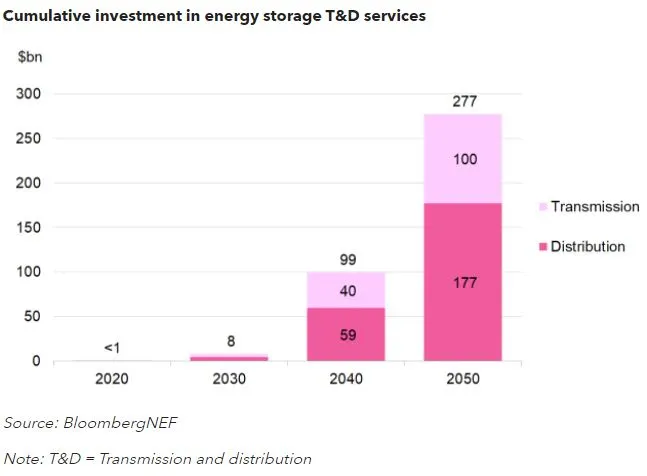Energy Storage to Steal $277B From Power Grids by 2050
- Cost of lithium-ion battery to drop 68% from 2020 to 2050.
- Germany, France plan to invest 428m euros on associated projects.

Battery storage projects are coming to be more competitive in regard to brand-new power lines as a result of falling battery costs. Energy storage projects that supply transmission and distribution solutions will certainly amount to a $277 billion market between 2020 and 2050, BloombergNEF quotes.
Batteries can reduce grid congestion and postpone the need for brand-new power lines. While grid prices are increasing or stay level, the expense of a four-hour duration lithium-ion battery system is expected to stop by 68% to $104 per kilowatt-hour by 2050, from $320 per kWh in 2020.
Grid drivers are already suggesting battery alternatives. Germany prepares to invest 348 million euros on its Netzbooster project and also France plans to invest 80 million euros ($419 million) on Project RINGO.
Utilizing batteries for network assistance is still incipient. It could take twenty years for the market to create to $10 billion each year. To increase development, the storage industry needs regulative frameworks that clarify who can own energy storage systems as well as incentive network owners for minimizing capex.
Also read

